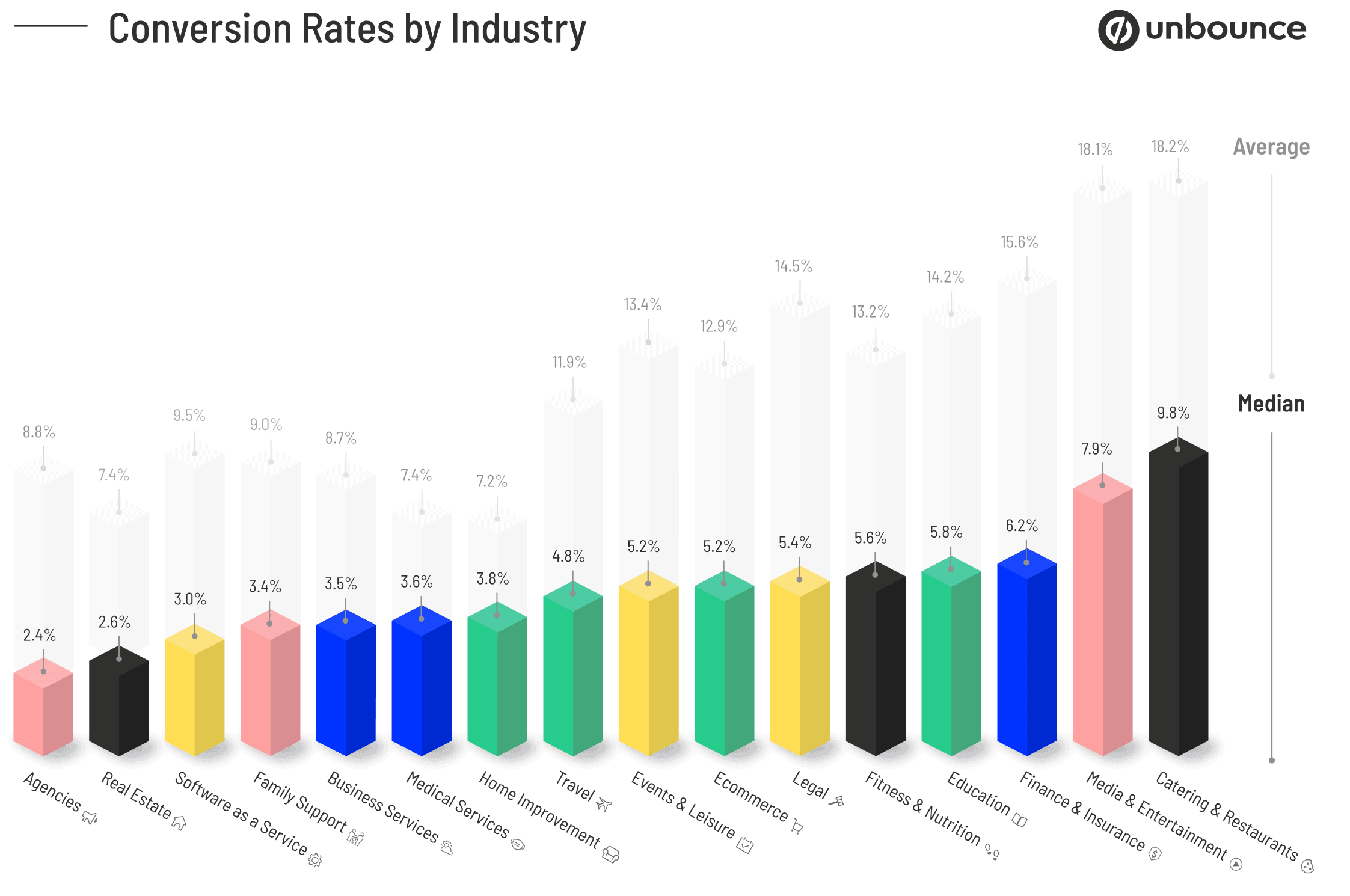With a global recession looming on the horizon, the cost of acquisition on the rise and consumers being more careful with their monthly paycheck, direct-to-consumer brands are asking themselves what they should do to keep their business thriving through one of the most uncertain times they are likely to face in the near future.
The Single Unifying Theory For Growth
There is no single unifying theory for growth, or how to magically transform a single pound into many pounds, and as is often the case in marketing, the only real answer is…‘it depends’.
What I can say with some amount of certainty, is that the ecommerce market in general seems to be shifting towards organic growth and customer retention as key tools for the coming e-pocolypse.
This is something that you have likely seen yourselves. In between the stories of heroism, perfect work-life balance and hustle culture, technology platforms and agencies alike (Eastside Co included) are pushing out retention content like there is no tomorrow.
This is largely a good thing. I often find myself pointing out that organic growth and customer retention have been part of good business strategy since those things were invented and that adopting these things now due to market demands is just another case of short-term thinking. However, if you don’t have a retention and organic growth strategy already in place, now is as good a time as any to get moving on it.
This post, however, is not really about retention and growth strategy in general. It is about the other thing you have probably heard lots about in the past, and particularly in the last six months.
Conversion Rate Optimisation
For those in the inner circle, you’ll hear it called CRO. For those so deep in the inner circle that they have in fact entered a realm that I don’t fully understand, you may have heard it referred to as a ‘CROW audit’ (if you ever hear me say this, I would be more than happy for you to tell me how ridiculous I sound before we both move on with our lives).
CRO audits and programmes have been around for a long time. In terms of ecommerce, it is, generally speaking, the act of trying to increase the number of people who purchase when they visit your site. Indeed, we offer a range of CRO services here at Eastside Co.
Calculating Conversion Rate
Your conversion rate is calculated as the total number of people who ‘converted’ (purchased in this case) and dividing it by the total number of sessions on your site. So for example, if you had 10 sessions and one purchase, your conversion rate would be 10%. Good for you. This is a great insight to have and simultaneously a useless indication of nothing in particular (don’t worry, I’ll explain).
The first thing we need to understand is if your conversion rate is good or bad. One way to do this is by looking at benchmarks. Before you go off anywhere to find these, I have put a handy guide below in order to be helpful (and to increase your time on site).
Ecommerce Conversion Rates by Region according to Kibo Commerce
Q2 2021
- Great Britain Average Conversion Rate: 4.4%
- United States Average Conversion Rate: 2.8%
- EMEA Average Conversion Rate: 2.1%
- Other Average Conversion Rate: 1.6%
So based on the above, depending on where you are in the world, your conversion rate could be anywhere between 1.6% and 4.4%. It’s a pretty big spread.
But what about if we investigate by industry sector?
In their 2021 conversion rate benchmark report, Unbounce found median conversion rate ranged from 2.4% at the bottom of the pack for agencies (why are agencies at the bottom?) all the way up to 9.8% at the top end of the scale for catering and restaurants.

Ecommerce in general sits around the middle of the pack with an average conversion rate of 12.9% and a median conversion rate of 5.2%.
So far we have discovered that your conversion rate should be somewhere between1.6% and 12.9%. Still not super helpful, but at least we have a range.
The truth is, conversion rates not only have a significant range across countries and industries, but also from brand to brand. If for example, Amazon was to be included in the ecommerce category, the average conversion rate would shoot up significantly because people only go to Amazon with the intent to buy, which isn’t true of almost every other ecommerce brand.
It’s the equivalent of looking at the average wealth of a group of people shopping at a discount store when one of those people happens to be Elon Musk.
A Different Focus
Instead of focusing on where everyone else is, you should ultimately be looking at where you are now, and looking to make iterative improvements that can directly affect your conversion rate. Conversion rate optimisation, at its core, is about making more of what you already have - rather than constantly trying to add more people into the purchase journey.
This is where the other big misconception comes in though.
I am fairly positive that if you were to go and purchase 10 CRO audits from 10 different people, at least 9 of those audits would focus on changes you need to make to your website to improve your conversion rate.
‘Wait, Louis!’ I hear you shout. ‘That’s what CRO is!’
Well, yes and no.
I would argue that, in most cases, the experience your customer has on your website has less of an impact on your conversion rate than you think. This is especially true of ecommerce.
A Familiar Structure
The structure and function of an ecommerce website is incredibly well-established for most consumers and they have expectations about how ecom sites will work. People shop online all of the time, and through doing that, they have become experts at navigating ecommerce websites, finding what they need and completing a purchase.
With the advancement of technology and platforms like Shopify, this has become even more prevalent. Companies like Shopify spend obscene amounts of money to understand what works well within ecommerce and baking that into their core system and templates.
The core of any ecommerce site is the homepage, collection/category page and a product page/PDP (again with acronyms). The homepage will have some branded content and links to key products or categories, and maybe some offers, the collection/category pages will have a list of products within the category, and the product page will have an image gallery, product details and a big old “Add to cart” button.
Fundamentally that’s it. The core of the user journey is those two pages. Of course, you have the cart and checkout, but with platforms like Shopify, this is largely taken care of and unified across all sites.

So What's The Issue?
Major problems with on-site conversion rate come when you step outside of that mould which forces users to relearn how to use your specific site. Even then, in my experience, you have to make it incredibly difficult in order for a consumer who really wants to buy from you to walk away.
So why are agencies so focussed on making changes to a website to improve conversion rate? Well firstly, let me put in a defence for agencies around the world. Improving on-site experience can affect conversion rate over time. Having clearer messaging, better merchandising, reviews, user-generated content, clear user journeys and calls to action, personalisation and a well-rounded, delightful website experience will, in most cases, help to improve the conversion rate of your site.
I am not trying to make the point that you shouldn’t make those iterative improvements, my point is that we all need to stop considering that as the main factor.
If you’ve got this far, you have earned the right to see the big reveal.
The biggest factor affecting your conversion rate is…
…the traffic you are sending to your site.
Like all big reveals in magic, I accept there may be an element of disappointment here. It’s so simple, it hardly seems worth mentioning. I promise you, this is more important than you think and I am going to try and prove it to you with maths.
CRO Breakdown Example
Let’s say I have a site with 10,000 sessions and a conversion rate of 0.5% That means I have 50 sessions that converted to sales (10,000/100 x 0.5). On the surface, we can safely assume this is a pretty poor conversion based on industry benchmarks.
The standard CRO audit will review your site and make recommendations on improving the website to increase the conversion rate. They will use a test-and-learn approach to implement changes, see the effectiveness of the change and continue to do so until conversion rate improves.
However, what if the site is pretty good in terms of user experience? In fact, maybe this is the lowest conversion rate you have had, and previously the site converted at a much higher rate so you know that it can work. What then?

Let’s dig a little bit deeper by breaking down those 10,000 sessions.
Total Session: 10,000 consisting of:
Paid Search - 6,000 Session (60%) Paid Social - 2,000 Session (20%) Organic Search - 1,000 Sessions (10%) Email Marketing - 500 Sessions (5%) Referral - 500 Session (5%)
Now, this is where my maths skills get a little bit ropey, but let’s give it a go. Below, I have assigned the 50 conversions the site got to specific channels.
Number of conversions per channel:
Paid Search - 10
Paid Social - 5
Organic Search - 20
Email Marketing - 15
Referral - 0
So, based on the above, although my overall conversion rate is only 0.5%, my conversion rate by traffic source tells a very different story.
Conversation rate by channel
Paid Search - 0.16% Paid Social - 0.25% Organic Search - 2% Email Marketing - 3% Referral - 0%
The above stats (although they are completely made up and may well contain some maths errors) show very clearly that the website, in its current state, has the ability to convert at up to 3% so although there may be some areas of improvement, it’s nowhere near as bad as the initial 0.5% average conversion rate indicates.
Look Deeper...
The real issue here is that the quality of traffic being delivered from Paid Search and Paid Social is not at the level of Organic Search and Email Marketing. In fact, if those two tactics were converting at the same rate as Organic Search, the site would have seen another 145 conversions for the same period - which means lots more revenue, and a significantly improved conversion rate.
What the example above indicates, is that in terms of priority, website changes are not at the top of the list of actions that should be taken. An in-depth analysis of the Paid Media strategy should be performed to establish what improvements can be made to the traffic from those sources to ensure that the customers arriving at the site have the intent to purchase. Secondary to that, doubling down on areas like email and organic search should probably be top of mind as these areas already have proven results and likely have more to yield if the effort is put in.
Disclaimer
Before I get a barrage of emails, I fully understand that not all paid media is designed to create an immediate purchase. Of course, you need to take that into account. However, your aim as a merchant is to drive more revenue for a similar amount of effort, and to ensure that each of the tactics within your strategy is delivering the best possible results, focussing just on your ‘on-site’ experience is a mistake.
Conclusion
You only have to go one level deeper than on-site experience to discover the actual cause of your conversion rate issue. It’s time to stop just treating symptoms. We should be looking for the root cause of the issues and solving them at the source.
If you get your traffic sources right, the conversion rate will take care of itself, even with an average on-site experience. Then you can work on fixing the minutiae on site to continuously create the interactive improvements that you can get from A/B testing, customer surveys, UX improvements and any other standard CRO practice you can think of.
We have a team of marketing and CRO experts who can help improve your performance. Contact us today for more information.


